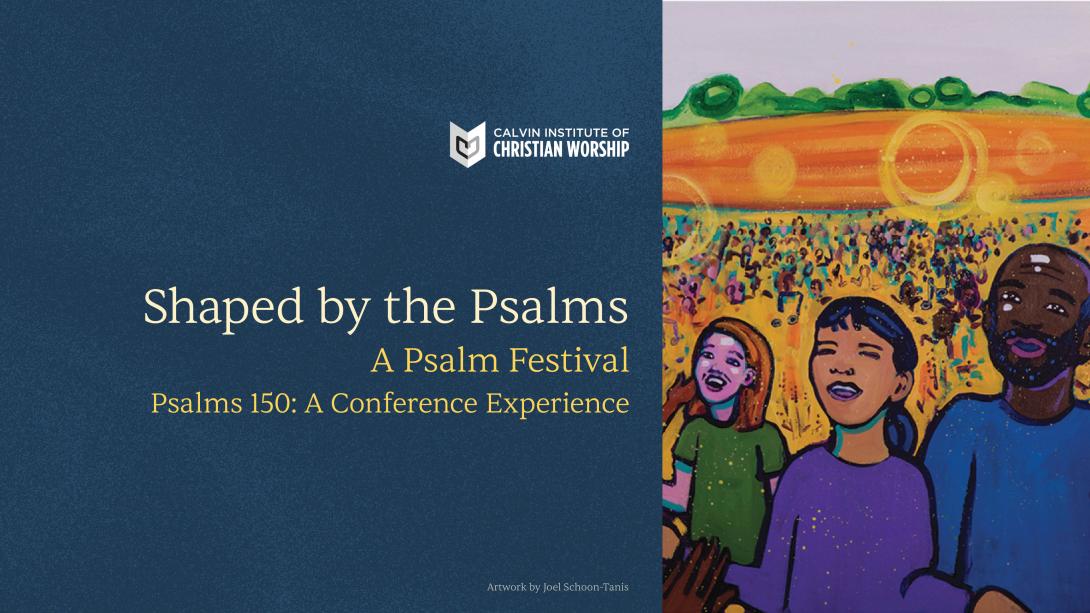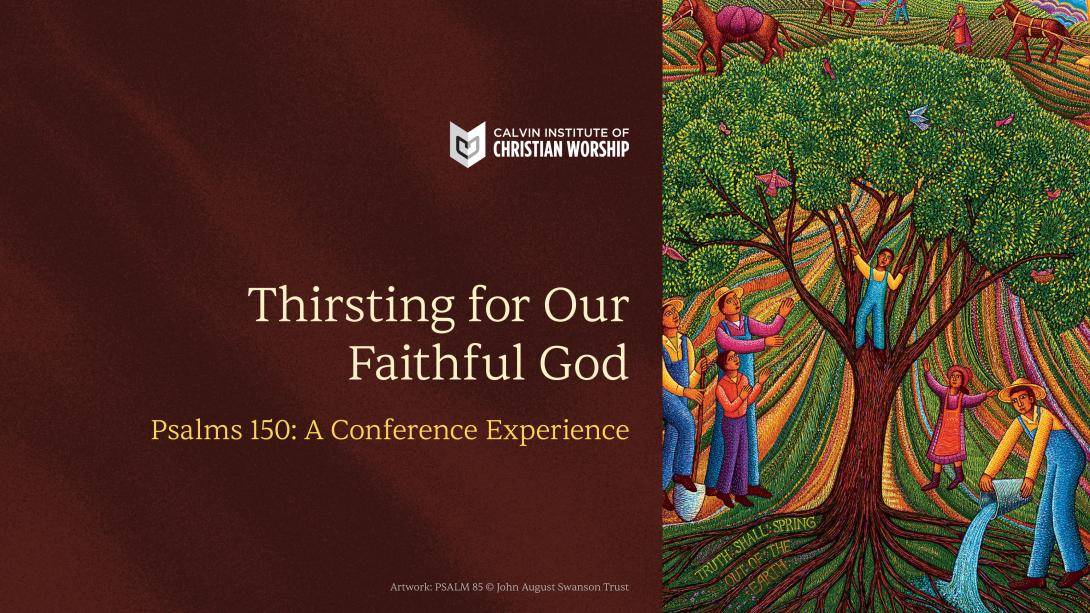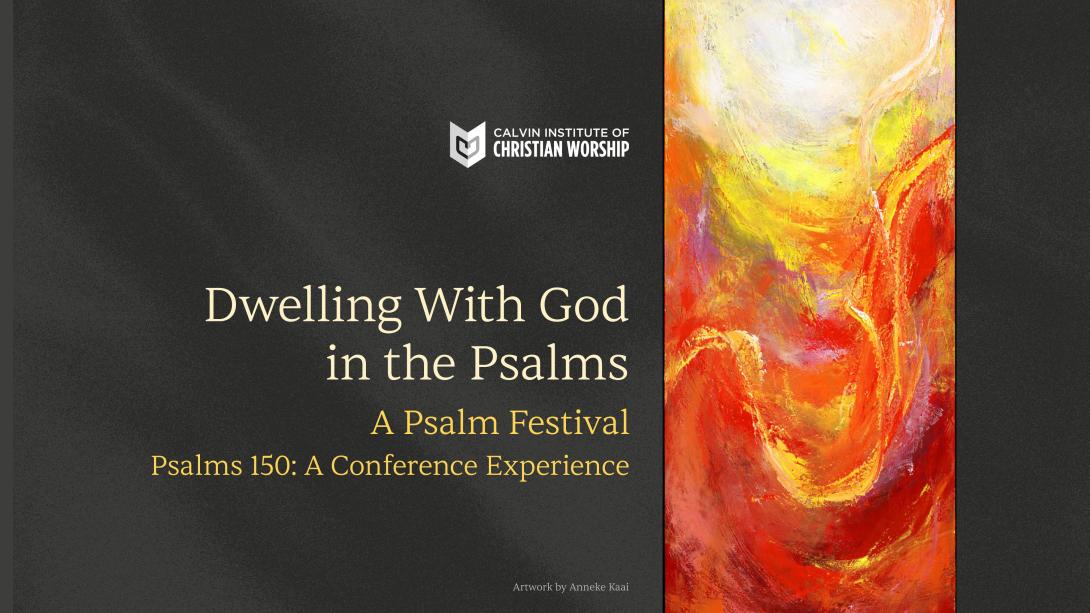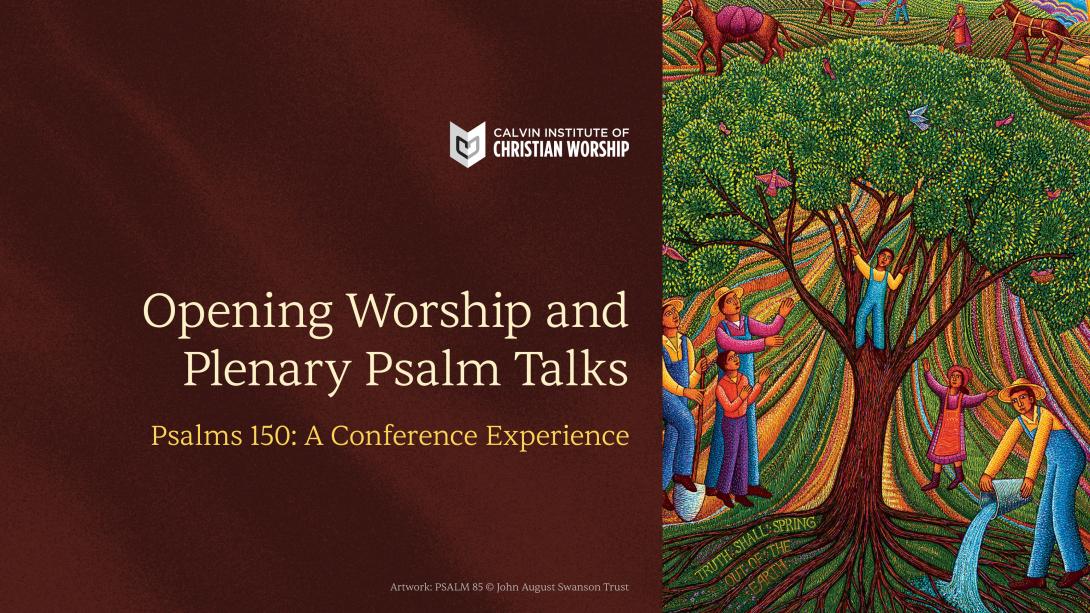John Witvliet [00:00:08] Speaking of systemic change, the final petition, “Lead us not into temptation, but deliver us from evil” is a powerful, crescendoing climax to the prayer itself. Say a little bit about what this has meant to you to pray as you've grown and continued to learn.
Mark Charles [00:00:28] These parts of the prayer, I don't change them at all. I try hard to make sure I don't individualize them. I leave them as a corporate “Lead us not into temptation. Deliver us from evil.” I think what can be dangerous is when you individualize this for your own context, your own experience. It can create a space where you begin seeing specific people as evil. And you can begin to create an us versus them, whether it's your political opponent or whether it's a nation across the world, and you can create these categories of where I am is good and where they are is evil, and we need you to deliver us from that. And I work hard and I don't want to begin to define other people or even other groups of people as evil. If we did that, certainly the United States of America would be at the top of the list of what are the evil entities in this world. And so I don't change these two sections of the prayer much. “Deliver us from temptation”—there are many things our hearts can go after. There are many things that my nation aspires to, that I aspire to individually, that are not helpful. . . . “Lead us not into those temptations, and deliver us from evil.” I try not to define what's evil or who's evil, because that can lead my heart into a bad place. If I put this person or that group or that entity as evil, that can cause me to sin, cause me to now treat that group of people as evil and not be loving toward them, not to treat them as human or whatever else, because now they're evil, and we have to rid ourselves of that. So I try to be cautious with these two while still acknowledging my own brokenness and weakness in this. Yeah, we are surrounded by evil, and we need God to deliver us from that. We need God to help us. But if we start identifying people as evil, we're going to be like the disciples who, when they were rejected by the Samaritans in the village, they're like, “Jesus, can we be the ones to call down fire on them?” Our human minds so quickly go into this us versus them mentality, and then of course God is on the side of “us” and he's opposed to “them.,” and we soon find ourselves praying that God will bring evil upon other people, or destruction or whatever else. This is where this part of the prayer can actually become very dangerous if we allow ourselves to get too specific with it, and especially if we begin to make it individual. I think we have to be aware of what tempts us, to be aware of what tempts our community, our family, our neighborhood, our city, our country, the human race. What is a temptation for the human race, and what does the human race give itself to? What are the evils out there? But allow God to more identify and label that. In the same way, where I don't want to start asking for a specific type of bread, a specific brand of bread, a specific type of food because that can lead me to be discontent with what God does provide—”God, I didn't want fish today; can you give me something else?” But the same thing, I think if we start individually labeling—“God, I want you to deal with that evil entity or that evil person”—then yeah, we're creating this us versus them mentality. So this part of the prayer, I think, can be dangerous. And we have to acknowledge that if we start labeling things, . . . that person is evil or that entity is evil, then once we start focusing and labeling and getting specific about that, I think that's where our hearts can tend to go into a darker place. And I'm sure there are many, many people around the world who when they pray God to deliver them from evil, they're praying that God will deliver them from the oppression of the United States of America and our drones that are dropping bombs on their villages, that are taking their family members away for questioning without any sort of legal process in place. On my better days I approach this part of the prayer with a greater amount of humility because I know what it can do, once I begin labeling something that way, what that can do to my heart.
John Witvliet [00:07:08] Mark, thank you for the discussion today. And I'm struck by the combination of global, communal themes, but also personal humility and vulnerability that have been woven together in your reflections. And I think about also the fact that this prayer isn't done with us yet, that it's calling us to new forms of obedience, and that all our conversations about a prayer like this are a work in progress and that we're learning together. So thank you so much for your reflections today and the opportunity to learn with you and from you.
Mark Charles [00:07:50] Thank you, John. I really appreciate the conversation, and I appreciate the questions. I think when I read this prayer, even as it's written in the scriptures, the thing that jumps out at me the strongest is how Jesus uses communal language throughout the prayer, and we are so trained to hyperindividualize these things. When we allow Jesus’ prayer to be the way it is written, it does lead us to a much more global, communal sort of understanding and much less an individual thing. But I loved this conversation. Thank you, John, for allowing me to join you with it today.





